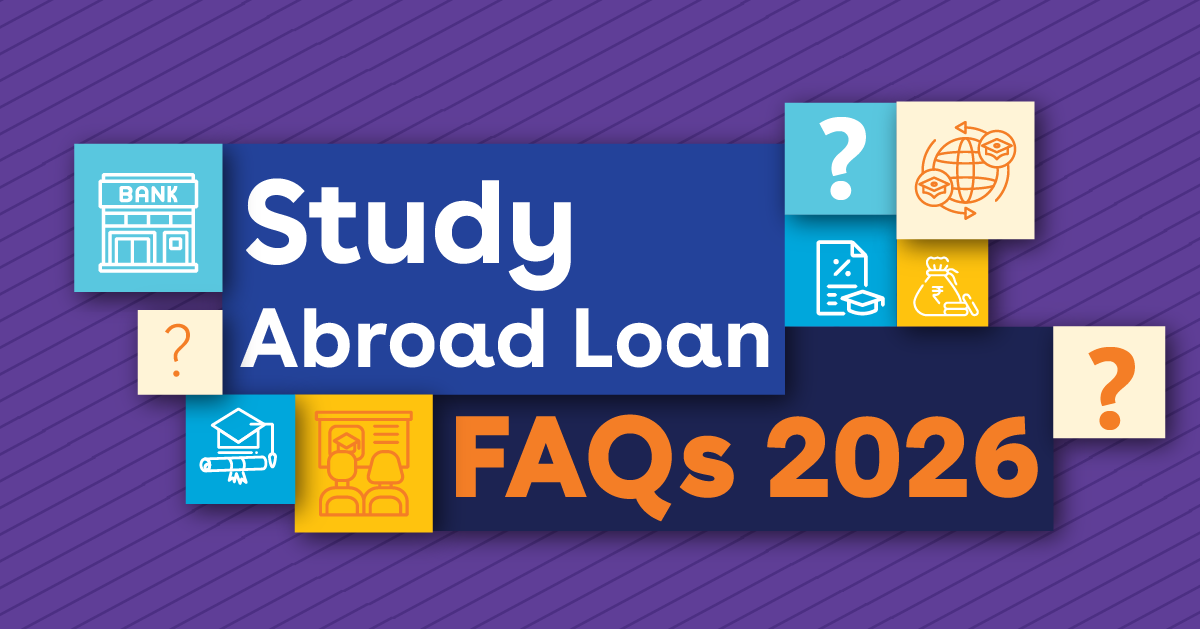Nov 09, 2022
Different Collaterals for Overseas Education Loan
Do you hope to continue your studies beyond the walls of your undergraduate institution in the last year of your degree program? Or are you considering quitting your work to enroll full-time in the Master's program of your choice at a prestigious overseas university? Regardless, you've probably considered the hefty expense of studying abroad and the possibility of needing to take out a student loan to cover it. If that's the case, you're probably aware that there are two distinct categories of school loans in India: those that require collateral and those that don't. This article will analyze secured overseas education loans and discuss all you need to know about them.What is Collateral for Student Loans?
Secured student loans are loans for higher education that require collateral. Borrowers of this type of loan are expected to pledge collateral in exchange for financing. In any case, the security being connected can be physical or merely on paper.
Loans up to INR 7.5 lakhs are available unsecured from most nationalized and private sector banks in India. However, these lenders require collateral or security for loans above the amount mentioned. NBFCs may also provide unsecured loans which are basically collateral-free education loans for abroad. However, borrowers should only select this option if the requested loan amount is significantly more than the value of the collateral being pledged.
Banks are more likely to approve a secured loan because they have something to fall back on if the borrower defaults on payments and the loan turns into a non-performing asset. The value of the collateral offered as security determines the maximum loan amount approved for such a loan. Interest rates are lower, and terms are more generous.
What forms of collateral will be accepted?
There are three main categories of collateral that borrowers might use to get a student loan. Here are some of them:
Immovable Assets: Real estate, such as a plot of land, a house, a flat, etc., is an example of an immovable asset. Note that lenders typically won't accept collateral in the form of farmland or land within the purview of the local Gram Panchayat. Nonetheless, non-farm open property with definable borders can be used to acquire a student loan.
Intangible Assets: Liquid investments like Fixed deposits, mutual funds, ULIPs, life insurance plans, government bonds, etc., are examples of intangible assets. However, the holder of the FD will continue to earn interest on the intangible assets even though the bank will retain the liquid securities, such as FDs. Both existing and new FDs can be used as collateral for student loans.
Third-party Secured Education Loan: Uncommonly, lenders will accept collateral that consists of the immovable property of a third party, defined as a "third-party secured education loan" (relative or friend)
Liquid Securities:
As collateral security for student loans, immovable property is pledged more frequently than the other two types of assets listed. This is because when we think of collateral, we typically think of a house or land, and even bank personnel do not usually have the responsibility of explaining everything.
However, as stated previously, you can also pledge liquid securities, which lenders prefer as collateral security. You can read our article on the student loan process to learn that immovable properties require time-consuming legal and value studies, and liquid securities can be rapidly converted to cash, reducing the legal and valuation procedure, and resulting in a quicker lending process.
Government securities:
Government security bonds issued by PSUs, NSCs, and RBI relief bonds are accepted as collateral security. You can borrow up to the total face value of the bond.
Mutual funds: Mutual funds may also be pledged as collateral security for education loans for abroad studies. However, only a small number of banks accept it. In addition to being arduous and time-consuming, banks evaluate just roughly 50% of the current market value when determining the loan amount. It is preferable to sell all your shares and open a fixed deposit account with the proceeds.
Fixed Deposits - Once again, FD must be the most pledged form among liquid securities. As collateral for school loans, lenders assess the principal value of FDs, not their maturity value. Fixed Deposits are eligible for 90-100% loans from lenders.
LIC Policy: Lenders also accept LIC policies as collateral for education loans, so long as they are term insurance policies. State Bank of India is one of the few banks that typically evaluate insurance plans from just LIC and bank-affiliated insurance businesses. 100% of the surrender value of your insurance products can be borrowed.
Let's examine why you should choose Elan for your student loan.
Our financial experts are accustomed to the documentation and processes of numerous government financial institutions. The assigned finance officers will work tirelessly to eliminate any obstacles to borrowing money for school. If there are any problems with a student's pre-visa loan disbursement, pre-visa loan application, or supporting documentation, that student's designated financial officer will endeavour to fix the issue as soon as possible during the day.

×
Register Now
- Share this Article
Articles on Overseas Education Loans

Student Loan for Studying Abroad Faq
Studying in a foreign country miles away from home takes courage...Jan 21, 2026

Education Loan for MBA in Ireland
As a tourist, one may associate Ireland with lush natural scenery, rich cultural...Dec 31, 2025

Education Loan for Japan
Japan, the Land of the Rising Sun, is a technological and economic marvel...Dec 29, 2025

 Login
Login